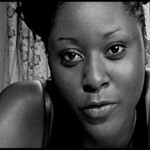
By Kim Bennett
The Seattle Medium
Nigerian filmmaker Chika Anadu is reaping the rewards of a four-year journey. Her hard work and determination has led to her first feature film, B for Boy, becoming as big of a success story as there is when it comes to an independent film. Producing a feature-length film is no easy task, but Anadu takes it in stride.
“I am bit of a control freak,” says Anadu. “I think to be a director you need to be a bit of that. It wasn’t about me trying to be in control of everything, it was just circumstance because I wrote the script, and I was the one trying to get the film made.”
Screening at the 2014 Seattle International Film Festival, B for Boy most recently won the Africa Movie Academy Awards (AMAA) 2014 Award for Best Film in African Language. Also, the film’s star, Uche Nnadali, won the AMAA 2014 Award for Best Actress in Leading Role Performance.
Shot in just 17 days, B for Boy is an intimate portrait set in Nigeria of an upper middle class career woman, Amaka, who is 39 years old, 6 months pregnant, and under intense pressure to have a baby boy. Fearing that her husband will take a second wife, at the urging of his mother, to ensure the continuation of the family name, Amaka is pushed to the edge. As the story progresses, she finds herself increasingly entangled in the tug-of-war between modern ways and traditional duties that threatens to tear her world apart.
B for Boy confidently takes on the topic of gender discrimination by examining how the assigned importance of a male child can lead to injustices perpetrated against women. Following Amaka’s journey as she searches for a way out of a desperate situation while navigating a contentious relationship with her mother-in-law, you can’t help but wonder how she will emerge unscathed.
“My thinking is that the journey really matters and that’s what I’ve shown,” explains Anadu. “No matter what she (Amaka) does, her life will never be the same again.”
Anadu’s own journey as a filmmaker, fueled by focus, is inspiring and just as interesting. Over the course of producing two shorts and one feature film, she has positioned herself as an up-and-coming talent who can adeptly tackle big issues. As writer, director, producer, and more for B for Boy, Anadu went through something similar to a crash course when faced with the daunting task of producing her first feature.
“I was the casting director, location scout, accountant, lawyer, I drafted all the contracts and all of that,” said Anadu. “It was a lot of hats to wear. It’s not ideal, but I don’t know that the film suffered from it. “
Laughing, Anadu recognizes the upside of juggling so many roles as a once-in-a-lifetime learning process.
“I will never do anything like that ever again in my life,” says Anadu. “It would probably kill me the second time around. The good thing about that is, I understand every aspect of the business now.”
When it came to the film’s budget, family played a large role. With seventy percent of the film’s funding coming from Anadu’s family and thirty percent from her producing partner’s family, B for Boy was entirely funded with family money.
The challenge of producing B for Boy and its subsequent success allowed Anadu prove to herself and others that she can accomplish a great deal on her own and with the support of family.
“I think that generally as human beings, when you think about yourself, you have this idea of who you are when you haven’t been tested yet. And then you hope when the test comes, that you will prove to be this capable person,” says Anadu. “I was lucky that I thought I could handle it, and I could.”
The concept for the film was also the result of Anadu’s desire to grow as a filmmaker. In 2010, the New York Film Academy made its way to Nigeria for the first time, offering one-month workshops in directing, acting, screenwriting, and camera work. Her mentor suggested that she work on her screenwriting so she could write her own material, and so Anadu enrolled in the screenwriting course.
While still in the course, she applied to the prestigious Cannes Cinefondation Residence Program, honing her skills on the 14-page treatment that was part of her submission. To develop a treatment worthy of consideration, Anadu pulled from her go-to collection of topics.
“I had this list of issues, themes and subjects that I would like to tackle as a filmmaker. The importance of a male child was the only one I thought I could waffle on for 14 pages on,” she recounts.
With a bit of luck, as she describes it, she secured one of only six spots in the program and travelled to Paris to dedicate her time and energy to writing the script for her first feature film.
“The Cinefondation, is not like a hands-on thing, so you don’t have a script editor or anything like that,” Anadu explains. “It’s basically space for you to write outside of your normal environment so you are not distracted. You are in Paris in a gorgeous apartment and they pay you to write or not write. I made the decision when I came in that I would leave with my first draft, and I did.”
That first draft became the poignant film diving into the complexities of cultural duties and gender discrimination. With the goal to introduce international audiences to different aspects of life and culture in Nigeria, Anadu also sheds light on the themes and issues common to all people.
“I want people to see correlations of that kind of gender discrimination in their own cultures and not look at it as a Nigerian problem,” says Anadu. “It’s universal, the struggle of women. More than seeing the differences, there is that, but mostly see the things that we have common and our common struggles as human beings period.”
Over the course of two and half weeks, Anadu produced a fascinatingly intimate film that invites the viewer into the private life of a woman that may, at first glance, appear to be a world away. However, through this powerful and sensitive portrait, Amaka is relatable and her story helps spur conversation and increase awareness about gender discrimination around the world.
“You don’t want people to leave your film and sleep peacefully,” says Anadu. “You want them to go and talk about it over dinner and keep talking and asking this question. That’s how things change. When you open your mouth and you speak about it, then change can happen, and that’s what I want, change.”
B For Boy will screen during the Seattle International Film Festival at the following time and location:
Fri., June 6, 1:15 PM AMC Pacific Place 11
Director Chika Anadu is scheduled to attend this screening
For more information on the film visit: http://www.siff.net/festival-2014/b-for-boy



